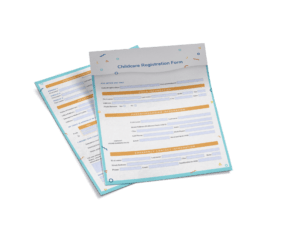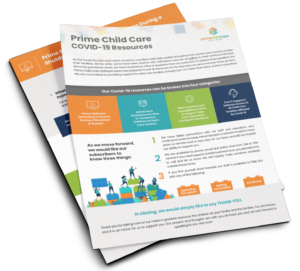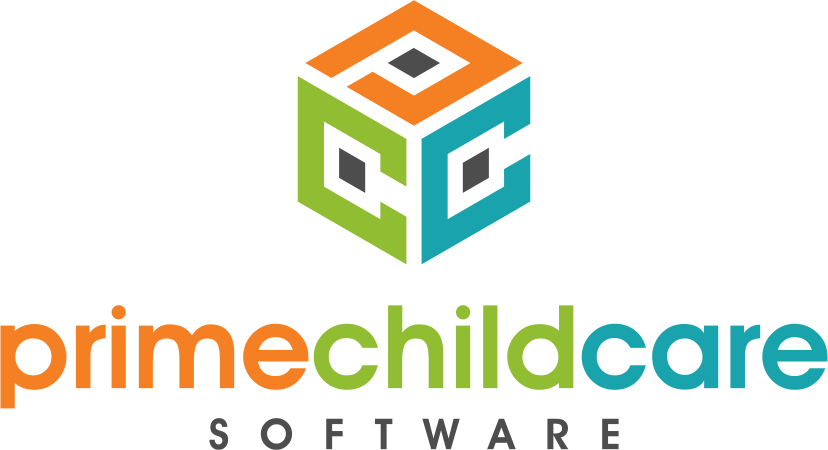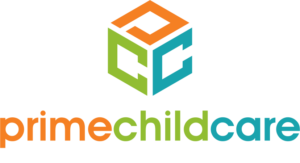As a childcare provider, you have a high calling.
Daily, you prioritize the safety of the children entrusted to your care. In the modern world, that includes not only providing a physical but also a digitally secure environment. In that light, nothing can be more important than data security and its counterpart, the software privacy audit.
Essentially, data security protects daycare staff, students, and parents. While privacy regulations differ from state to state, you must do everything you can to meet your obligations in this area. Parents expect nothing less.
Part of your responsibility will involve securing PII (personally identifiable information). The best way to do this is to subject your systems to careful testing.
Privacy and Security
The concepts of privacy and security in data management are related but not the same. You can have excellent security and yet fall short on privacy protection. Unquestionably, security is a matter of access control: the process of delivering data integrity through selective access.
Two of the most common types of access control are discretionary access control and mandatory access control. In the first, the owner of the software assigns the privileges of access to users. Some users will invariably receive greater access to sensitive data than others. Meanwhile, mandatory access control assigns access privileges to users based on a system’s security classifications.
Databases and APIs are especially vulnerable to privacy breaches. A database often contains a diverse range of information. Some applications need access to data that constitute PII while others don’t. Your software should be configured to grant access only to legitimate applications.
Similarly, SaaS products can be flexible enough for a range of purposes. However, an API (a software intermediary that allows two programs to communicate with each other) is especially susceptible. If it doesn’t have adequate security protections in place, it could provide access to untrusted applications or even to anyone who can run a script.
Children and PII (Personally Identifiable Information)
Privacy in a daycare environment applies to students, parents, and staff. The most important concern is the protection of personal identifiers, such as:
- Names
- Social Security numbers
- Addresses
- Pictures and videos
- Fingerprints
- Financial/banking credentials
Even information that doesn’t qualify as unique identifiers can be matched with public domain information to expose personal identities. For example, a person’s age, sex, and zip code can be used to single out an individual.
In certain situations, you may be legally required to disclose personal information to authorities. The software you use shouldn’t make it excessively difficult to comply with such requirements. At the same time, protection against abuse is necessary. Sometimes, officials demand more information than they’re legally entitled to. So, software privacy protections can help your employees reject invalid requests.
The Importance of Software Protections
Granularity in software protects data privacy. Parents should only be able to access information pertaining to their own children. And, employees should only have access to the functions that are necessary to do their jobs.
Your software should use role-based authorization to establish granularity in access. If an employee’s job doesn’t require seeing financial information or health records, the corresponding account shouldn’t make them available. Such restrictions keep employees from inadvertently giving out information they shouldn’t.
By and large, giving parents remote access to their children’s records is important. In today’s digital environment, interactive technologies facilitate collaboration between teachers and parents. However, you must ensure that these web services or apps don’t disclose sensitive data. To that end, only authorized users should be allowed to participate in information sharing.
The software configuration must be thoroughly tested so it doesn’t have any security holes. In many cases, pseudonyms help ensure data privacy. The software can refer to children by identifiers, and employees can look up specific IDs when needed.
How to Implement a Software Privacy Audit
For all these reasons, childcare centers should implement a software privacy audit to make sure it has strong privacy protections. MITRE Corporation has provided a good set of guidelines on how to conduct a software privacy audit. The purpose is to make sure the use of information is consistent with all applicable policies, laws, and regulations. An audit identifies gaps and weaknesses in privacy protections that need to be corrected. It’s an ongoing process, and there’s always room for improvement.
A general software privacy audit helps determine whether controls are in place to ensure data integrity. Professionals with information technology skills and experience should execute the audit process. Specifically, the audit will check for a variety of risks, such as:
- Impersonation and identity theft. The software shouldn’t be difficult to use but should be able to assign access privileges.
- Insider threats. Role management should limit the amount of information that non-specialized employees have access to.
- Insecure APIs. A service that exposes information through an API should use a strong form of authentication before responding to any request for potentially sensitive data.
- Release of excessive information. Each transaction should provide only the information required. Queries that return unlimited access to data can be exploited by hackers.
- Inadequate technical safeguards. This includes problems such as leaving copies of information in unprotected locations, transmitting data insecurely, and failing to erase obsolete information.
Options for Privacy Protection
If you host your own software, you need to keep up with any security patches the vendor issues. But, if you use a cloud-based SaaS offering that comes with patch management, the required patches will be deployed automatically.
Essentially, account management is central to privacy protection. User accounts should have strong passwords containing a mixture of uppercase and lowercase characters, numbers, and special characters. And, expired accounts should be promptly deleted. Most importantly, only key personnel should have access to administrator accounts that provide access to sensitive data. These accounts also need the strongest protections, such as two-factor or multi-factor authentication.
The Benefits of a Software Privacy Audit
The improper exposure of confidential data isn’t always obvious. Thus, a software privacy audit is necessary to spot any potential breaches. Catching security leaks before they turn into real problems will keep the children in your facility safe from predators or unscrupulous individuals with malicious intent.
And, it’s important to repeat the process periodically. Software configurations change and privacy risks evolve over time. A software privacy audit, followed by the correction of any problems that it discovers, will assure parents that their children’s information is in good hands.
Recent Articles from Prime:

Childcare Registration & Enrollment Form Template
Knowing all of the information you need on an enrollment form for your center can sometimes be overwhelming. Check out this free enrollment form template to help ease the enrollment process for your center! … Read More

6 Ways to Estimate Your Cash Flow During Fall and Winter
Cash flow keeps your daycare business healthy and enables it to accelerate during busy months and withstand lean ones. There are different ways to estimate and measure cash flow. Each has its merits and weaknesses, depending on your operational goals. … Read More

3 Ways to Ensure Parents and Guardians Are Reading Health Notices and Policy Changes
Now more than ever parents need to stay up-to-date with your daycare center. Getting them the information is easy. Getting them to actually read it, though, tends to be much more difficult. So how do you make sure important information is getting to parents? … Read More

How to Protect Student Data Privacy
Data privacy is top-of-mind for parents. But, how do you secure personally identifiable information? Read on to get our best tips for protecting student data privacy. … Read More

Prime Child Care COVID-19 Resources
As the COVID-19 crisis took hold in America, countless childcare centers throughout the country were forced to shutter their facilities. All the while, some have been overrun with admissions and are struggling to meet newfound demand.
Since the pandemic arose, we have received an influx of questions from our customers. To address these questions, the Prime Child Care Software team has prepared COVID-19 resources for the daycares we serve and even those we don’t.

5 Ways to Incorporate Technology into Your Daycare’s Emergency Plan
It’s essential to have an emergency plan in place for any variety of emergencies that could crop up during an average day at your childcare center. The use of technology can provide instant communication during moments of crisis and eliminate extra tasks that could take attention away from children when they need it most. … Read More






